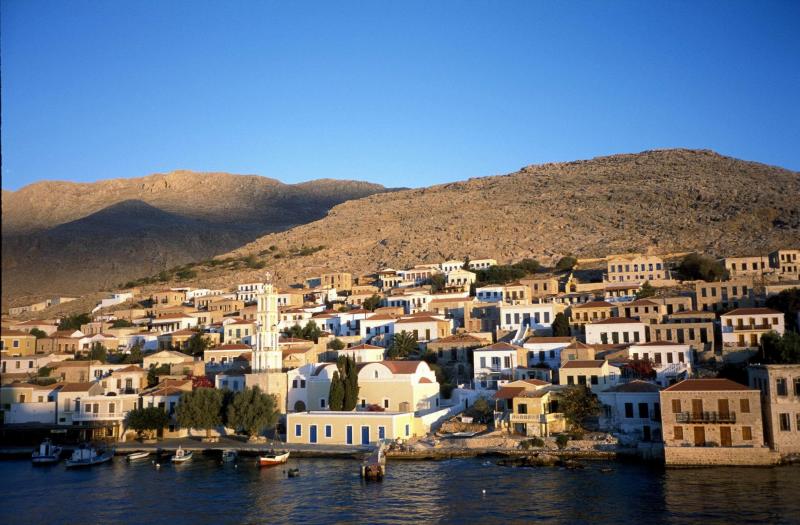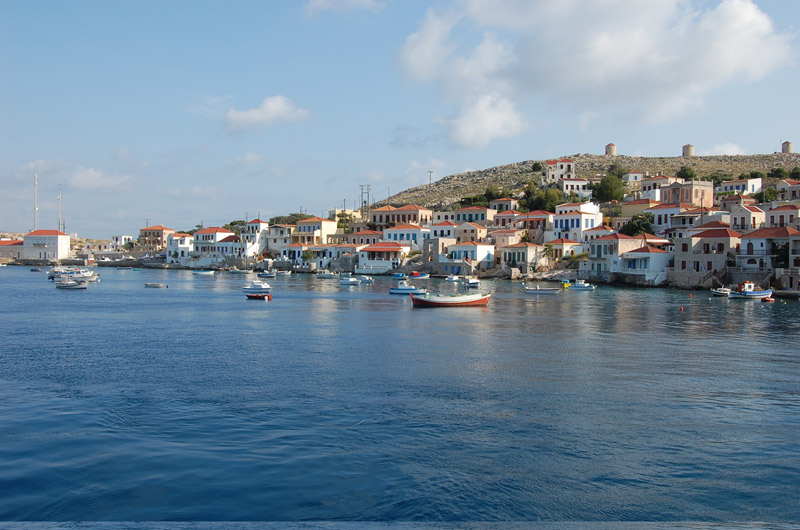Here is the most recent interview on the ESI proposal on the name dispute between Macedonia and Greece which I just gave to the Macedonian daily Paper Dnevnik. The Macedonian version is online as well.
Previous press coverage and reactions to the proposal you find here.
Your proposal was discussed in Macedonia but not in Greece. Do you think that Greece could accept such an arrangement?
Yes, I do. There is a simple reason why both Macedonia and Greece could accept this: it is better than the status quo for both. At this moment EU Balkan enlargement is completely blocked. Serbia is blocked because of Kosovo; it is simply inconceivable that the EU will admit another country with an unsolved territorial dispute, as it has done in the case of Cyprus, and this is slowly becoming clear to Belgrade. Bosnia and Kosovo are blocked because they are still protectorates. Turkey is negotiating but moving at snail’s pace because of the Cyprus issue. And Macedonia, the frontrunner among the Balkan states so often in the past, is blocked because of the name. Some EU member states, eager to postpone the next wave of accession for another generation, hide behind these unresolved issues. The current government in Athens does not like this. Remember, Papandreou has taken political risks before to promote the EU integration of the region: in 1999 he changed decades of Greek foreign policy to support, rather than to oppose, Turkey becoming a candidate for EU accession. He put a lot of energy behind the Thessaloniki summit in 2003 to persuade a skeptical EU to give the Balkans a clear perspective. The same team in Athens is now trying to create new momentum in favour of Balkan enlargement again, which they see as a matter of Greek national interest.
Why would your proposal be acceptable for Greece?
Here is what could happen. First Macedonia and Greece agree on a name, such as “Republic of Macedonia Vardar”, or something similar, to replace Former Yugoslav Republic of Macedonia wherever FYROM is used now: in the EU, in the UN and in other international organizations. Macedonia changes its constitution to say that from the moment it becomes an EU member its international name will be, for instance, “Republic of Macedonia Vardar”. In the Macedonian language the country would remain “Republika Makedonija”. Next, Macedonia joins Nato and EU accession talks begin still in 2010. So what would happen in Athens? The Greek government would be attacked, of course. That is what oppositions do, and Samaras is not famous for his moderation in this particular matter. They could complain: “You allow Macedonia to join NATO and unblock the EU accession talks without a solution of the name entering into force now.” But Papandreou could say that this compromise is still better than what any other Greek government, including those in which Samaras served, have achieved in two decades. First, to have Macedonia join Nato and to see EU enlargement continue is in Athen’s vital interest. Second, he can point to the constitutional amendment and he could warn that those in Greece who want to press for further concessions from Skopje would risk losing everything. And third, he can ask what the policy of the past two decades has really achieved even for the most radical Greek nationalist? This compromise makes it unattractive for any future Greek government to use its veto at any stage in the accession process. Objectively it then becomes a Greek interest to see Macedonia join the EU rather sooner, whoever is in power in Athens.
Diplomatic sources in Athens say that the last deadline for Papandreou to find a solution for the name issue is end of August or mid September because the autumn will be difficult for the Greek government. How credible is this in your opinion?
I think it is credible. Papandreou is still popular in Greece, but the hardest economic and social reforms are yet to come. No unpopular Greek government would be able to make any compromise, which still has to be sold to the public. This promises to be a hot autumn in Greece, and managing the economic reforms and likely protests will absorb all the government’s attention. At this moment there are two strong governments, both in Skopje and in Athens. There will not be a better opportunity to resolve this than exists in the next few weeks. Perhaps not for another decade or more. Perhaps never.
How much the Greek crisis influences the search for the name solution?
I believe that this government in Athens would have wanted to solve the problem even without a crisis, but the economic crisis has given it additional arguments. First, it can argue that Greece needs to have good relations with all of its neighbours for economic reasons. It cannot afford to alienate either potential tourists or potential markets if it wants to get out of its economic hole. If South East Europe develops, it will also help Greek companies. Second, Greece has seen its European reputation undermined due to economic mismanagement. Any success in foreign policy would restore it as a credible actor in Brussels.
Have you had some contacts in the Macedonian government and do you believe that they could accept your proposal?
Yes and yes. Of course, some will say that there should never ever be a compromise. Some still believe – ignoring what the European Council hast now stated repeatedly – that perhaps the EU will not demand a compromise before opening accession talks. But even if you are opposed to ever changing to name you might like this particular proposal! Here is what the government could tell those who want no concession at all, ever: “First, we get Macedonia into Nato. At a moment when there is growing uncertainty again about the future of the Balkans this is good for investors, for interethnic relations and for Macedonia’s position in the world. Second, we start EU accession talks. This is also good in itself, even if in the end we decide that we do not want to join. Since Turkey started accession talks, it has seen its economy grow faster than ever before. The same has been the experience of other countries. Third, when our EU accession talks are completed the Macedonian public can decide in a referendum whether it actually wants to join the EU and change its international name or whether it does not want to join and keep the current name. This is a decision that will be taken then, and it is one that the people will make directly once they have a real choice. In the meantime, Macedonia reasserts its position as a frontrunner in the Balkans. In the very worst case, if a future Greek government or another EU government blocks Macedonia’s EU accession, nothing is lost. It is a win-win situation. So, even if you live in Australia and do not care much about Macedonia joining the EU, you might think that this is, at least, a tactical gain. If you live in Stip or Kumanovo or Ohrid or Skopje, you certainly do.”
If you have to say who is more credible saying that they want a compromise on the name issue, who would you choose between Skopje and Athens?
Both say that they want a compromise. What I do not know is whether the leaders will have the courage to take any decision, because clearly previous generations of leaders did not on this matter. As I said before, Papandreou has proven in the past, most spectacularly with Turkey, that he is capable of taking unpopular decisions if he believes they are in Greece’s long-term interest. In the context of implementing the Ohrid Agreement leaders in Macedonia have also shown courage and determination, which is why Skopje is now quite far ahead of Belgrade. At the same time both countries have red lines. No Macedonian leader will be able to change the name simply in return for the opening of talks, with no guarantee that there will not be more demands later, once a concession is made. And no Greek leader can give up totally on the idea of a change in the name. This means simply that both Skopje and Athens need a compromise they can defend, because in both countries, whatever is agreed, it will be attacked by some.
Do you believe in fast solution that would allow Macedonia to get into NATO and start EU talks?
If a solution is found in the next weeks, both NATO and the start of EU talks will happen very soon. This would be a very encouraging signal, benefiting Athens, Skopje and the whole Balkans. What makes me nervous is the alternative. If there is no solution now, when circumstances are better than they have ever been before, then there might not be another breakthrough for the next two decades. The name issue would become a truly frozen bilateral conflict, like Spain and the UK’s disagreement over Gibraltar, which nobody believes will ever be resolved. This is a very realistic danger.
You were recently in Brussels. How would you qualify the mood concerning the name issue? Are people there impatient or become more and more indifferent?
You have both. Those who work on enlargement are cautiously hopeful, but in a sense they have to be: the future of their job depends in part on finding a solution. People who work on enlargement believe that a solution has never been closer: this is what they have been told by the parties involved as well. As a result there would be tremendous disappointment if this fails. On the other hand there are people less keen on enlargement, which is a large number. They have become indifferent a long time ago. They think that this is simply another irrational Balkan dispute, which shows why it was a mistake to admit any Balkan countries to the EU in the first place. They fear the day when even more Balkan countries might join and welcome any reason for delay. They read the German paper Frankfurter Allgemeine a few weeks ago, which wrote that our proposal has only one problem: “it is too reasonable.” They do not believe that reasonable solutions ever work in the Balkans.
Does Brussels still believe that the name issue could be solved rapidly?
Few people believe in a rapid solution after 19 years without one, but some people certainly hope that it will be solved soon. This is particularly true for those who work in DG enlargement. They know that the credibility of an EU perspective cannot be stretched out forever. They want an end to this conflict almost as badly as people in the region. But I did not find many people in Brussels willing to put their own money on a breakthrough. When it will happen, it will still be a tremendous surprise to everyone. As one of the most optimistic officials told me: “While I believe that this time a breakthrough could happen, and ought to happen, and would be in everybody’s objective interest to happen, I still cannot believe that it will happen.”
EC is not satisfied with the reform process in Macedonia. Can Macedonia expect more critical remarks from Brussels in the following months?
Yes. The problem is, however, that without a credible enlargement perspective any critical remarks from Brussels, however justified, are unlikely to achieve much. If a country does not believe it will ever join, whatever the state of reforms, why worry about a critical report from Brussels? The next weeks will also decide about the future of the EU’s leverage and influence, not only in Skopje but in the whole Western Balkans.
Dnevnik, Monday 16 August 2010




